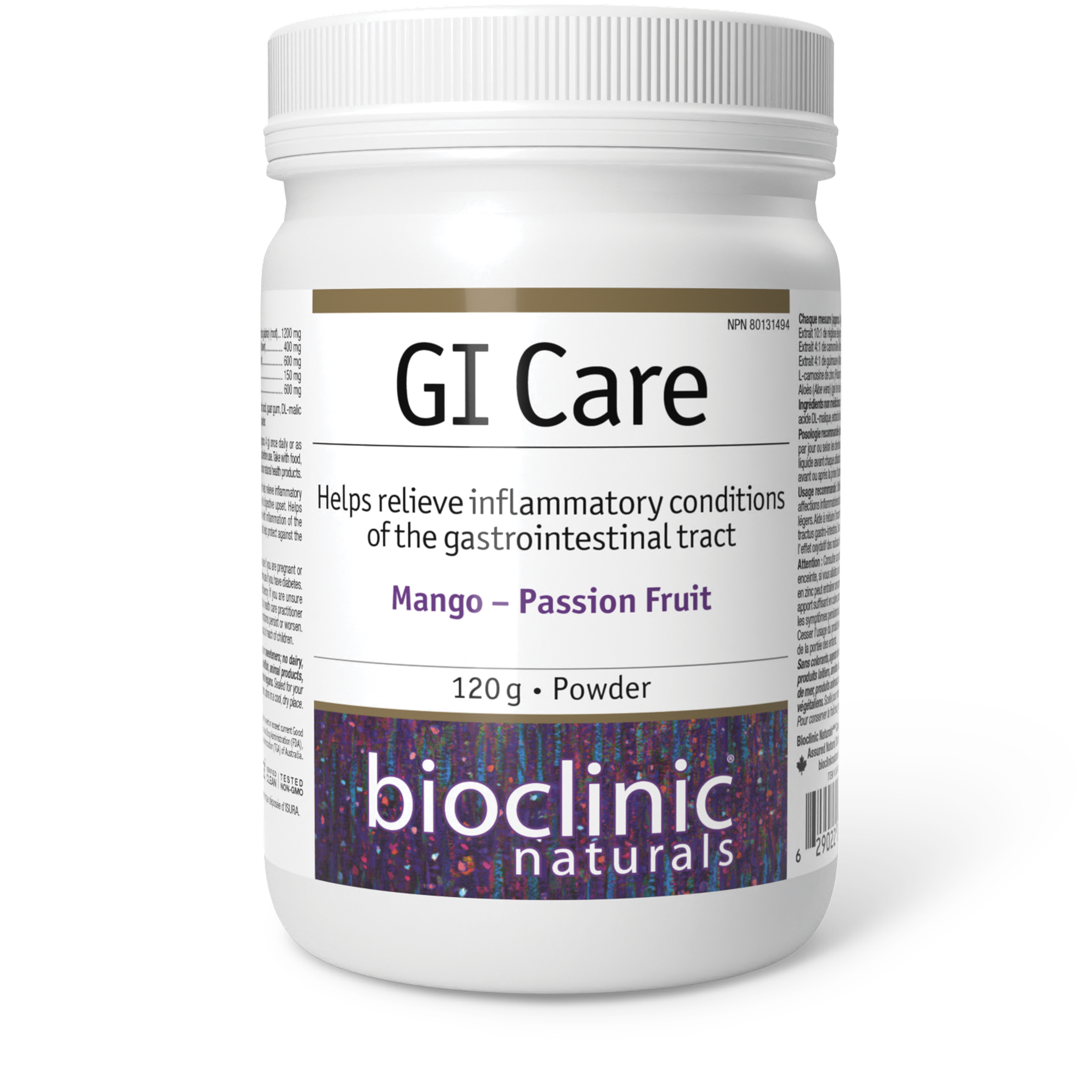
Mango – Passion Fruit
120 g Mango – Passion Fruit ( SKU: 9631, NPN: 80131494 )
Medicinal Ingredients
| Each Scoop (Approx. 4 g) Contains: | |
| Deglycyrrhizinated Licorice 10:1 Extract (Glycyrrhiza glabra) (root) | 1200 mg |
| Chamomile 4:1 Extract (Matricaria chamomilla) (flower) | 400 mg |
| Marshmallow 4:1 Extract (Althaea officinalis) (root) | 600 mg |
| Zinc L-Carnosine (Polaprezinc) | 150 mg |
| Aloe (Aloe vera) (leaf gel) | 600 mg |
Non-Medicinal Ingredients
Natural flavours, citric acid, guar gum, DL-malic acid, stevia leaf extract, Oryza sativa (rice) hull powder.
Dosage:
Recommended Adult Dose: Take 1 scoop (approx. 4 g) once daily or as directed by a health care practitioner. Mix with liquid before use. Take with food, a few hours before or after taking other medications or natural health products.
Warnings:
Ask a health care practitioner before use if you are pregnant or breastfeeding. Ask a health care practitioner before use if you have diabetes. Zinc supplementation can cause a copper deficiency. If you are unsure whether you are taking enough copper, consult a health care practitioner prior to use. Ask a health care practitioner if symptoms persist or worsen. Stop use if hypersensitivity/allergy occurs. Keep out of reach of children.
Allergens:
Contains no artificial colours, preservatives, or sweeteners; no dairy, starch, sugar, wheat, gluten, soy, egg, fish, shellfish, animal products, salt, tree nuts, or GMOs. Suitable for vegetarians/vegans.
